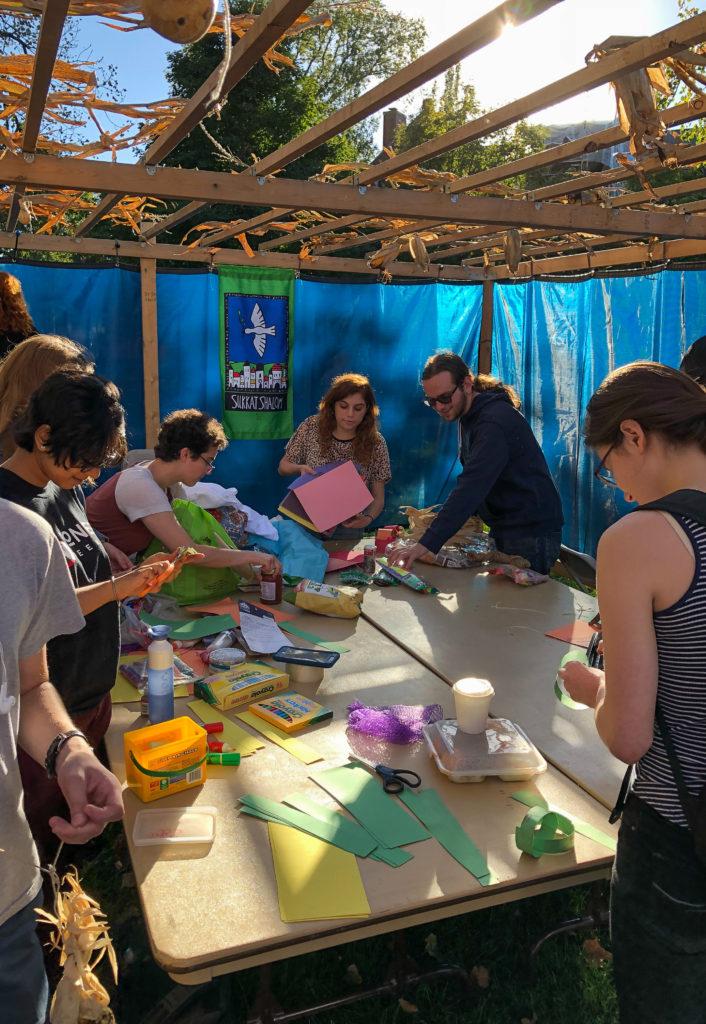A year ago, first-years and returning students set foot on a campus without a rabbi. Many were surprised; without any formal announcement by the college, Rabbi Rob Cabelli had left over the summer, and no replacement seemed to be lined up. An entire year came and went without a religious leader for the Chalutzim community, and today, that seat in the CRSSJ is still empty.
Prior to the summer of 2018, Rabbi Rob managed the day-to-day finances, programming and encouraging of Chalutzim. Since his departure, the impetus to fill the vacuum left behind has been placed upon the students and a few supportive members of faculty. That means running weekly Shabbats, monthly events, dissemination of information, discussions of faith and day-to-day tasks are being divided among a body that is unpaid and overworked.
“We can’t run this operation by ourselves,” said Natalie Niederman ’20. “We spend most of our week planning Shabbat, which is fine…but we don’t have time to plan other Jewish events, talk about Jewish identity, have fruitful conversations, and engage with people we normally don’t. This is what we are trying to do, but we’re stuck planning events we always have.”
The lack of a central figure to facilitate the Jewish experience at Grinnell, therefore, has decreased the capacity of Chalutzim to function. For religious events, a rabbi is needed, because students themselves are not qualified to run Shabbat sermons or mediate discussions of faith. Regarding programming, students, as devoted as they are, work unpaid and must juggle jobs, extracurriculars and schoolwork, and therefore can’t commit much time to planning. As a result, the Jewish community’s visibility and even legitimacy is weakened by the lack of an authoritative figure at Grinnell.
Students from years prior to the class of 2022 can remember Rabbi Rob, who was known as a campus source of emotional support, and a person to go to for discussions of faith, and conversations about their own history. Now, however, half of the current student body have never seen Chalutzim with a rabbi at the helm.
“I expected that we might have a small text study every week or maybe every couple weeks,” Anna Winter ’22 said. “But then it turned out that there was no rabbi and no similar opportunities for discussion that a rabbi might provide for the whole of last year.”
“It’s hard for us to create a community of Jews that know how to find each other,” TJ Calhoun ’20, president of Chalutzim, said. “Our rabbi gave us a sense of orientation and direction … a new rabbi would do a lot to make Jewish students feel like they’re cared for in a way they are currently not.”
Although the arrival of a new rabbi would give Chalutzim the stability it needs to foster faith and growth, there’s still much work to be done in comparison to other small liberal arts colleges. Wesleyan University, for example, has “The Bayit,” a headquarters for Jewish life with a full kosher kitchen, common area and housing for about twenty students. Grinnell’s Jewish community doesn’t have a dedicated dining hall, and certainly doesn’t have a house—in fact, they don’t have a permanent space on campus aside from the Chalutzim suite. Carleton College offers Hebrew language and literature courses, while Grinnell College doesn’t offer any.
Although Grinnell College is in the process of hiring a new rabbi, it’s been lethargic, with no clear expected date for a hire.
“If Grinnell wants to be taken more seriously by future applicants,” said Calhoun, “this should be a thing that is a top priority.”




































































Karen • Oct 6, 2019 at 10:02 pm
I am the mother of a young Jewish woman who graduated with the Grinnell class of 2017. If Grinnell had not had a rabbi back when she applied, I would have worried that Jewish students might face a hostile environment at the college, and I would have discouraged her from applying.